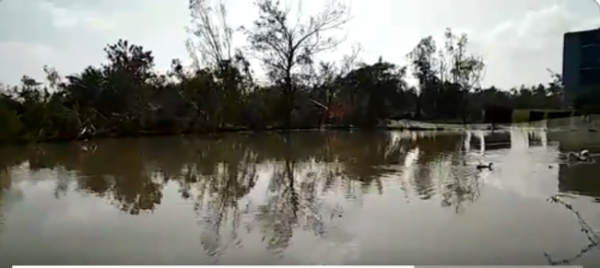The cyclone has killed 20 people across India and Bangladesh, according to recent reports, displacing some 2 million more. Winds of up to 75mph hit late on 9th November, with both countries closing airports and ports.
In Bangladesh, eight people were killed and at least 20 more injured, with coastal Khulna being the worst hit district. Twelve people were killed in India’s West Bengal state and Kolkata. The cyclone also damaged thousands of mostly mud and tin-built houses, according to local authorities.
Christian Aid said the loss of life was limited due to evacuations. Around 2.1 million people across Bangladesh were relocated to cyclone shelters, with tens of thousands of volunteers going door-to-door with loudspeakers, urging people to evacuate their villages.
Shahana Hayat, Christian Aid humanitarian programme manager, said: “The cyclone has brought significant devastation to areas where people are already struggling to survive: they will now need financial and practical support to rebuild their lives and their livelihoods.
“While we mourn those who have been killed by this deadly cyclone, we are grateful that further loss of life was avoided thanks to planning. For years we have been supporting communities to prepare for disasters like this. We will continue standing with them. With climate change, we are seeing storms like these becoming more frequent and more intense – and it’s the poorest people who are hit the hardest. The people of this region have suffered enough.”
Through the ‘Shifting the Power’ project, Christian Aid is currently building the humanitarian response capacity of 11 local and national organisations, promoting women-led responses and encouraging other organisations and government to get involved.
The charity also supports 600 vulnerable waterlogged-affected families in the south west by strengthening their livelihoods. With UNDP (United Nations Development Programme) funding, Christian Aid has implemented a flood recovery and resilience project supporting 80 households in the south east.

















